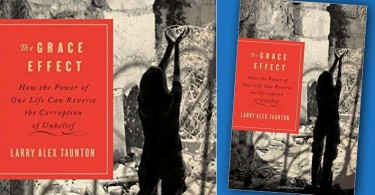Sandy Adams left her abusive marriage with only her three-year old daughter and their clothes. While working two and sometimes three jobs to support her daughter, Adams went back to school, obtaining her GED and her college diploma. She spent seventeen years in law enforcement and eight years as a Florida state legislator, advocating for victims’ rights.
Now, as a new U.S. Congressman, Adams sponsored a bill, drawing on her experiences as an abused wife and as a law enforcement officer and legislator trying to help victims.
Last week, the U.S. House passed Adams’ bill, the Violence Against Women Act Reauthorization (HR 4970) which is now up for consideration in the Senate.
Sponsored by Cong. Sandy Adams and co-sponsored by 40 other representatives, the bill eliminates three of the defects in the Senate’s Violence Against Women Act (VAWA) reauthorization bill.
Adams noted that the House vote on May 16 in favor of her bill “sends a strong message that the reauthorization of the VAWA should leave politics at the door.” Adams expressed that “It is disappointing that the Senate has instead chosen to score political points on the backs of victims by inserting provisions that pit one group of victims against another.”
Adam’s bill eliminates three objectionable provisions that would have:
- subjected non-Native Americans to prosecution by Native American tribal courts, raising concerns about due process and expansion of tribal court authority;
- identified Lesbian, Gay, Bisexual and Transgender (LGBT) persons as a special class of victims under the VAWA;
- increased opportunities for immigration fraud by granting illegal immigrants permanent residence without adequate evidence of abuse.
Instead of these inadvisable provisions, Adams’ bill designates domestic violence tribal liaisons in the U.S. Attorney’s Offices to work with the Native American criminal justice system and provides Native American domestic violence victims the ability to get restraining orders through the federal courts.
Adams disagrees with the Senate approach that “pits victim against victim,” she says. Instead, Adams’ bill includes an equal opportunity provision protecting the rights of all persons of any “actual or perceived race, color, religion, national origin, sex, disability.” This evenhandedly protects all victims rather than designating particular groups for special privileged status under the statute.
Adams recognized that “some immigration programs historically included in VAWA reauthorization legislation have been subject to fraud and abuse.” Adams’ bill protects illegal immigrants who are victimized by a criminal, but it limits fraud by not granting them permanent U.S. residence unless the crimes are committed by aliens who are convicted of the crime and who are deported to the victim’s home country. This is a step towards eliminating amnesty for illegal immigrants who merely claim they are the victims of domestic abuse. The bill also strengthens anti-fraud provisions so that fraudulent victims do not take the limited resources that could benefit actual victims of domestic violence.
“We want to see women served better and money spent better,” said Rep. Virginia Foxx, who supported the Adams’ bill, explaining, “Our goal is to ensure that more money is spent on direct services and less on administrative bureaucracy.”
Whether the VAWA effectively helps victims of domestic abuse and violence is an open question, but Rep. Sandy Adams’ bill eliminates the three highly politicized additions to the original bill. And that is a step in the right direction.
First published on Independent Women’s Forum in May 2012








